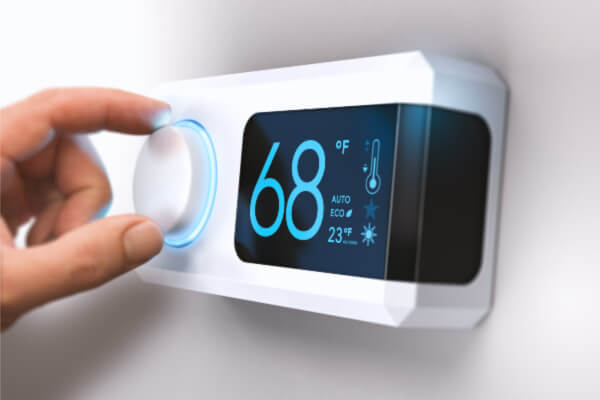Don’t just assume that you are getting good sleep because you sleep 8 hours every night. I always thought the same thing! In my research, I kept coming across information about how important sleep was to health. I thought I was doing fine because I was sleeping at least 8 hours a night. I found out I was wrong!
If you are not adding the good sleep habits and cutting out the bad sleep habits that I will address in this post, you are likely not getting the restorative sleep that your brain and body needs. This will impact your health and your energy.
Sleep quality is more important than sleep quantity, and our modern-day lifestyles have a negative impact on the quality of our sleep. But there’s something you can do to change that! This article will help you learn how to improve sleep quality. Keep reading to learn 21 easy changes you can make to get better sleep.
Table of Contents
Sleep Is an Important Investment
Sleep is usually the first thing we cut out of our schedules when we are trying to get more done, but by cutting out sleep, we actually impair our productivity and our ability to think and focus. Our brain and body will be generally less effective. I used to feel like I was wasting so much time sleeping 1/3 of my day. When I was too busy, the first thing I would cut out was sleep. But when you don’t have enough sleep its harder for your brain to do its job. Studies even compare sleep impairment to drunkenness.
Instead of thinking of sleep as a waste of time, start thinking of it as your most important investment.

How Sleep Affects Health
Several critical processes happen when you sleep. When you sleep, your brain and body are busy processing information, consolidating memories, balancing hormones, draining waste, detoxing, repairing tissues, assimilating nutrients, maintaining metabolism, and even losing weight!
As you sleep, your body is in an anabolic state, and when you are awake it is in a catabolic state. Anabolic means building up and catabolic means breaking down. If this isn’t balanced out, it will cause serious health problems.
Sleep deprivation is clinically proven to be linked with obesity, heart disease, diabetes, cancer, depression, memory loss, and Alzheimer’s disease. Not getting enough high-quality sleep is directly correlated to the inability to lose weight and body fat. If you have been exercising and eating well and still can’t seem to lose weight, sleep could be a key factor.
1. Mouth Taping
Mouth taping sounds like such a strange idea, but one of the most important components of getting a good night’s rest is how we breathe. We are supposed to breathe through our nose, but many people breathe through their mouth without even realizing it. When you breathe through your mouth while sleeping, you will not feel fully rested when you wake up in the morning.
Mouth breathing causes mild sleep apnea because your tongue may not be in the proper position and can block your airway, causing disordered breathing. Mouth breathing can also cause the sympathetic nervous system to activate which signals stress hormones and elevates blood sugar levels. Nose breathing activates the parasympathetic nervous system which is all about resting and helps you to get a better night’s sleep.
I found two helpful videos about mouth taping. The first video is by High Intensity Health. In the video, Mike Mutzel talks about how mouth taping changed his life and he shows exactly how he tapes his mouth to get better sleep.
In the second video, Dr. David Jockers talks about how 90% of our society breathes from their mouth during sleep. He talks about how mouth breathing negatively impacts health, how mouth taping improves health, and he shows his method for mouth taping.
There is also a helpful podcast on Dr. Mark Hyman’s website called “The Secret to Better Sleep? Stop Doing This One Thing.” This podcast gives in-depth information about sleep apnea, mouth breathing, and mouth taping.

2. Get Light Every Morning
Getting natural sunlight or bright light therapy during the first 30 minutes when you wake up helps to set your circadian rhythm. It is also important to continue getting exposure to sunlight throughout the day. This will help you to have more energy to stay awake during the day and sleep better at night.
Getting light exposure every morning and throughout the day will help you fall asleep faster, stay asleep for the duration of the night, and will improve the quality of sleep. Getting natural sunlight outside is best, but if you are unable to get daily sunlight exposure in the morning, you could use a bright light therapy box or SAD lamp (seasonal affective disorder).
3. Have a Consistent Sleep and Wake Schedule
Being consistent with your sleep and waking times can improve the quality of sleep you get. Try to get in the habit of going to bed and waking up at the same time every day, including the weekends. Over time, your body will get so used to the schedule that you may not even need an alarm clock to wake up.
Irregular sleep patterns can change your circadian rhythm and lower the production of melatonin in your body. Your circadian rhythm keeps your body in sync with the cycles of day and night. When you disrupt these rhythms, it leads to health issues and poor sleep.
4. Schedule Sleep Based on Sleep Cycles
It usually takes your body around 1.5 hours to get through 1 sleep cycle. Sleeping 8 hours may not be the best advice because you will likely be waking up in the middle of a sleep cycle which will make you feel groggy. You may feel more refreshed if you sleep either 7.5 hours or 9 hours. Play around with different wake times to see what time you should wake up to have the most energy.
5. Try Going to Sleep by 10:00
Your body gets the most regenerative sleep between 10 pm and 2 am. This is when it produces human growth hormone and melatonin in their strongest doses. If you go to bed after 2, but still get 8 hours, it may seem like you are getting enough sleep, but you will not have gotten as high quality, regenerative sleep as someone who went to bed by 10.
I used to think I was a “night owl.” I would still get 7-8 hours of sleep, but I would go to bed after midnight. After switching my schedule to going to bed at 9:30, I noticed a big change in the quality of my sleep.
It turns out that most people that think they are night owls actually aren’t. The exposure to LED lights, blue light from devices, social influences, and other daily habits that disrupt our circadian rhythm, can shift a person’s sleep cycle a few hours later.
There was a study done in which participants’ sleep was monitored while they were on a weeklong camping trip. Participants were not allowed to have any devices or forms of artificial light such as flashlights. After camping and being exposed to more natural light during the day and no artificial light at night (just the campfire), the night owls in the group shifted their bedtime and wake time an average of two hours earlier. They woke up naturally earlier without an alarm clock and they felt more alert in the morning. This study shows that our modern lifestyle of spending more time inside with artificial light is affecting our circadian rhythm.

6. Stop Using Electronic Devices Before Bed
Stop using electronic devices the last hour before bed. Using devices such as your phone, computer, tablet, or watching television exposes you to blue light. Seeing blue light before bed affects your circadian rhythm and disrupts the hormonal cascade that needs to happen before, during, and after sleep.
Blue light exposure before bed can lower melatonin levels and raise cortisol levels, which is the opposite of what you want to happen before bed. When your brain sees the blue light, it is tricked into thinking it is daytime, and it produces hormones accordingly. This can delay sleep onset and makes your sleep less efficient. If you try this tip, it will likely start improving your sleep quality immediately!
7. Use Blue Light Blockers
If things come up and you need to use your devices closer to bedtime, there are other options. You can wear blue/green light blocking glasses or turn on blue light blocking apps on your devices.
If you have an iPhone or iPad, a blue-blocking filter called Night Shift will already be on your device. You can go to your settings and click on display and brightness to create a schedule for when you want Night Shift to turn on, that way you don’t have to remember to turn it on each night. Android devices have apps for this in the app store. For your computer, go to https://justgetflux.com/ to download blue-blocking software.
Blue light blocking glasses and apps may be helpful, but it is most effective to stop using your devices before bed. You should also try to dim the lights in your home when it starts getting dark outside. If you don’t have dimmable lights, you can use low light lamps instead of the bright ceiling lights. Limiting blue light and dimming your lights will help send your brain natural signals that it is time for bed.
8. Sleep in Complete Darkness
Even tiny lights in your bedroom at night have a measurable impact on sleep. Your brain can detect light through your eyelids while you are sleeping, so try to make your room as dark as possible. Experts say that your room should be so dark that you can’t see your hand in front of your face.
When you are exposed to light during sleep, your body can’t produce melatonin as well. Turn off the lights, unplug nightlights, cover up all illuminated buttons on electronic devices, and invest in room darkening curtains. Cover up the time on your alarm clock too. It’s not good to see the light coming from your alarm clock, and it is not good to look at the time when you wake up during the night because it can cause anxiety and make it harder to fall back asleep quickly. If you can’t block all the light in your room, try using a sleep mask.
9. Cut Out Noise
Experts recommend wearing earplugs even if you are not a light sleeper. Noises can disrupt your sleep even if you are not aware of it and don’t wake up. The earplugs that will block the most sounds will have a rating of 39 decibels. White noise machines can drown out sounds around you as well. I use my air purifier as a white noise machine.

10. Sleep in a Cool Room
Our core body temperature naturally decreases to initiate sleep. Having a room temperature between 60-68 degrees F can boost the cooling process and enhances sleep onset. Test different temperatures to find out what temperature is most comfortable for you.
When the temperature in the room is too high, it will be a challenge for your body to reach the ideal core temperature for restful sleep. Anything above 75 degrees will likely cause problems with your sleep. You can take a cool bath or shower to drop your core temperature faster. A warm bath will also help. Not only is it relaxing, but it also helps your body’s thermoregulation. This is because your body quickly cools when you get out of the bath, leaving your body temperature lower than it was before you took the bath.
11. Invest in Quality Bedding
If you are having trouble sleeping at night, look at the quality of your bedding. Are you using the right type of pillow? Is your pillow too old? You should replace your pillow every two years. Make sure that your pillow supports your head and is the right style for your sleeping position. You should also make sure your mattress is supportive and comfortable and not too old. Most mattresses last around 8 years.
If you are looking for a new pillow and/or mattress, look for nontoxic bedding. Many pillows and mattresses are sprayed with flame retardants and other chemicals and off-gas volatile organic compounds (VOCs).
About 5 years ago, I bought a pillow that I was convinced was going to help me sleep better. I thought it was so comfortable that I told my family they should buy them. About a year later, I found out that the pillow I had been sleeping on every night was made with toxic materials and chemicals that among other things caused thyroid problems (which I was experiencing at that time!) There was a study done in New Zealand that linked the off-gassing of crib mattresses with SIDS! If you can, try to buy organic, non-toxic mattresses, pillows, sheets, and bedding.
12. Get Exercise
Exercise helps enhance all aspects of sleep. It can even reduce symptoms of insomnia. It helps reduce the time to fall asleep and increases total sleep time. Exercise also reduces anxiety, which plays a key role in sleep issues. You can go on a walk, do an exercise video on YouTube, play a sport, go on a bike ride, etc.
13. Limit Rigorous Exercise Before Bed
As I said above, exercise is helpful for sleep quality. However, some studies show if you exercise vigorously too late in the day, it can have negative effects because rigorous exercise increases alertness and increases hormones like epinephrine and adrenaline. Rigorous exercise also raises your body temperature and heart rate, and your body requires a lower temperature and a lower resting heart rate to fall asleep.
Exercising before bed doesn’t affect everyone the same way, and moderate exercise before bed hasn’t been linked with sleep issues. If you are having trouble sleeping, try changing your exercise schedule and see if that has an impact on the quality of your sleep.
14. Don’t Eat Before Bed
Reduce your eating window so that you are not eating before bed. Stop eating a minimum of 90 minutes before bed. The hormones that help you metabolize your food work against the hormones that help you sleep. When you eat larger meals, or particularly fatty or sugary meals before bed, your body temperature rises as your body tries to digest your meal. Your body needs a lower core temperature to fall asleep.
People who eat a lot of sugar throughout the day experience more intrusions in their deep sleep cycles because sugar delays the release of melatonin. Excess sugar early in the day can cause problems with sleep later, but it is even worse to eat sugar before bed. When you eat a sugary snack before bed, your blood sugar will not be stable when you are sleeping, and it can cause issues with going through the sleep cycles, leading to low quality sleep.
People who eat everything for the day in an 8-12-hour window of time can boost their circadian rhythm. The quality of your food matters just as much as the timing. Snacks such as almonds, walnuts, kiwis, and cherries help improve the quality of sleep. Eating more fiber and protein can increase deep slow-wave sleep because it doesn’t cause a spike in blood sugar levels and slows down digestion.

15. Have a Caffeine and Alcohol Curfew
You should limit the amount of fluids you drink 1-2 hours before bed and go to the bathroom right before bed to decrease your chances of waking up to go to the bathroom at night.
Stop drinking caffeine 8 hours before going to bed. Caffeine is a nervous system stimulant. If you drink coffee, energy drinks, tea, or hot chocolate in the afternoon it may cause less efficient sleep and a lower quality of sleep. Studies show that even when people think they are getting the same amount of sleep with caffeine in their system, a sleep monitor indicates they are actually losing around an hour of sleep.
Drinking alcohol also disrupts sleep patterns by reducing nighttime melatonin levels. Alcohol has been proven to help you fall asleep faster, but it disrupts your REM sleep. Alcohol makes it so you won’t be able to fall into a deep restorative sleep.
16. Turn Off WiFi
EMF’s from WiFi and electronic devices suppresses the duration and percentage of REM sleep. EMFs are also being linked to other health issues. Put your wifi router on a timer and set it to go off an hour before you go to bed and to turn back on when you wake up.
You also should keep electronic devices such as your computer, phone, tablet, and tv out of the room because they also emit EMF radiation that disrupts sleep. I use my phone as my alarm, but after I learned this, I am going to start putting my phone in another room. I found there is an added benefit to doing this. Now that I must walk to my phone to turn off the alarm, I am way less likely to hit snooze!
17. Use Natural Sleep Aids like Magnesium, Chamomile, and Lavender
Magnesium is a mineral that helps relax your muscles, calm anxiety, and can help you sleep better. Many people are magnesium deficient. You can get more magnesium in your body by eating a variety of dark leafy greens. Magnesium is also in avocadoes, nuts, seeds, bananas, and fatty fish. You can take a magnesium supplement or apply magnesium cream to your skin to help you sleep better. Make sure it is a high-quality product that your body will be able to absorb well because too much magnesium can cause diarrhea.
Having a hot cup of chamomile tea before bed can increase sleepiness and calm your body.
Inhaling lavender essential oil before bed can promote better rest as well. You can diffuse it, massage it on your shoulders and neck, or make a spray and spray it on your pillow and blanket.
You can make your own relaxing spray by mixing 4 ounces of magnesium oil, 10 drops of lavender essential oil, and 10 drops of chamomile essential oil. Spray this mixture on the bottoms of your feed before you go to bed.
18. Reduce Daytime Naps
Daytime naps that are too long mess up your sleep patterns and may make it difficult to fall asleep at night. Long naps may result in feeling groggier when you wake up. Short power naps of 25 minutes or less are beneficial to daytime brain function and will not negatively affect your sleep. The effects of napping depend on the person. If you are having trouble sleeping at night, try to shorten your naps or completely cut them out.

19. Write in a Journal to Turn Off Your Brain
If you struggle to fall asleep or stay asleep at night because your brain is still actively thinking or worrying, try journaling before bed. You can journal about what you did that day, what you were grateful for, and you can write a list of things that are on your mind that you are worried or bothered about.
It also may be helpful to write your to-do list for the next day. If I have a plan and to-do list set in stone for the next day, I notice it quiets my brain and helps me relax and fall asleep faster. If you are waking up in the middle of the night with thoughts and ideas running through your head, keep a notebook beside your bed and write those thoughts out on paper.
20. Focus on Your Breathing
If you are still finding that you are having trouble relaxing, try to focus on breathing through your belly, not your chest. Breathe in slowly and deeply for 4 seconds, hold that breath for 7 seconds, and then breathe out slowly for 8 seconds.
The exact amount of time is not that important, just make sure that you are breathing out twice as long as you are breathing in. Keep one hand on your belly and pay attention to how it rises and falls with each breath. Doing this breathing exercise will help stimulate the parasympathetic part of your vagus nerve and will help your pulse rate lower and your body relax. This tip always helps me fall asleep fast!
21. Have a Pre-sleep Routine
Think about what new parents are told to do to help their babies/toddlers sleep better at night. Having a sleep routine is critical to developing a healthy sleep schedule for young children. A pre-sleep routine can be just as helpful for adults! You can make the routine fit your tastes.
Take Action!
I hope that you find these tips helpful. I want to reiterate that sleep quality is so much more important than sleep quantity. Just because you sleep 8 hours every night doesn’t mean that you are getting deep, restorative sleep along with all of its benefits.
Now that you have 21 ideas on how to improve your sleep quality, start by applying 1 or 2 of the tips for a couple of weeks and take note of how you are feeling. Continue to apply more tips as you are able and notice how your sleep quality is improving. You should start noticing that you will wake up feeling refreshed, have more energy during the day, and will be more focused and productive. Let me know in the comments section below which tips you are trying!
Pin For Later


Leave a Reply